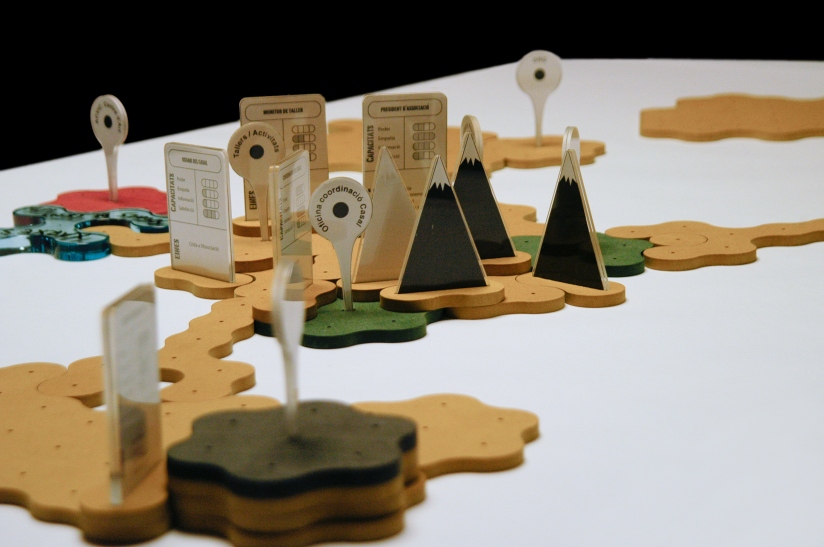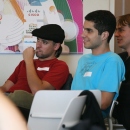Elgoog
Contributors: Platoniq
Elgoog (The Tracker) is a versatile simulation game designed to be adaptable to different contexts. In a simplified and didactic way, it reproduces several scenarios that emulate both real and imaginary experiences, so players can think of ficticious situations that can shed light on an organization's problems and obstacles. It also can represent new situations, so participants can learn to solve them in a cooperative way by contributing with new ideas, connections and collaborators still to be had into account.
Participants must play roles that involve different degrees of cooperation or rivalry, and solve challenges by means of making decisions that will affect the situation being discussed. The game stage may discover several factors that interfere (natural, social, cultural...), as well as... Read more
Content Assessment Systems
Contributors: Ismael Peña-López
The idea is comparing the traditional academic system of double blind peer review with other systems emerging on the Information Society to assess content in online communities, like the ones used in Wikipedia, Slashdot or Digg. But without using computers: everything off-line, analogue.
A project within the framework of the Bank of Common Knowledge, the idea is to help communities — online or offline, whatever — to evaluate their incoming content in order to assess its suitability for their purposes. To do so, we created a workshop were the rudiments of several systems (three, so far) were explained, compared and practiced in simulations of situations where such content had to be evaluated... Read more
A Lab without walls
Contributors: Antonio Lafuente
MediaLabPrado (Madrid) gathers a group of scholar and activists to study how to make visible and understandable the commons. For more than 2 years different approaches have been taken and the main criteria has been collaboration and openess. This approach emulates laboratory practices that is the reason for the name: Commons Lab.
Lab
It is often said that a family, a hospital, or a river are social laboratories, as they give rise to relations or conflicts that make it possible to understand all or part of the social environment of which they are a part, or which they help to create. Thus, by looking at a fragment of the world, it can be seen in its entirety, which is to say that several variables are sufficient (those that make it possible to plan, structure, and order) to gain a general... Read more
MonaLisa.torrent: P2P Game
Contributors: Platoniq
a) Concept, practise, tool in which it is inspired upon
The peer-to-peer file sharing (P2P) communications protocol BitTorrent
b) Goals
• Dealing with the concept of reproduction as a positive paradigm for creation and collective production
• Representing a possible work methodology based on horizontal learning
• Adressing cooperative action as a problem-solving strategy in human activity coordination
• Dealing with the concept of commons as a resource usage structure
• Introducing state-of-the-art technology
c) Operating instructions
• Introduction to basic P2P and the Bittorrent protocol
• A competition game is laid out, with groups of 4 or 3
• Each group is given a photocopy... Read more
Collective Moderation
Contributors: MetaReciclagem, Felipe Fonseca
Collaborators: Leo Germani, Elenara Iabel, Marcelo Braz, Wanderlynne Selva, MetaReciclagem.org mailing list.
The world wide web has been proposed in the early nineties as a free space, through which anyone could have access to a wide diversity of human knowledge. Later on, the web has also been identified as a brave new world in which every person would have the opportunity to interact with virtually any other and share his/her own knowledge, adding to the creation of a "collective intelligence", which would contain all sorts of useful (and also useless) information. If in one hand that has led to real disruptive technologies allowing new voices to be expressed throughout the world, on the other hand the huge amount of information available in any single moment exceeded what a person could be... Read more


 IMAGE
IMAGE IMAGE
IMAGE IMAGE
IMAGE PDF
PDF